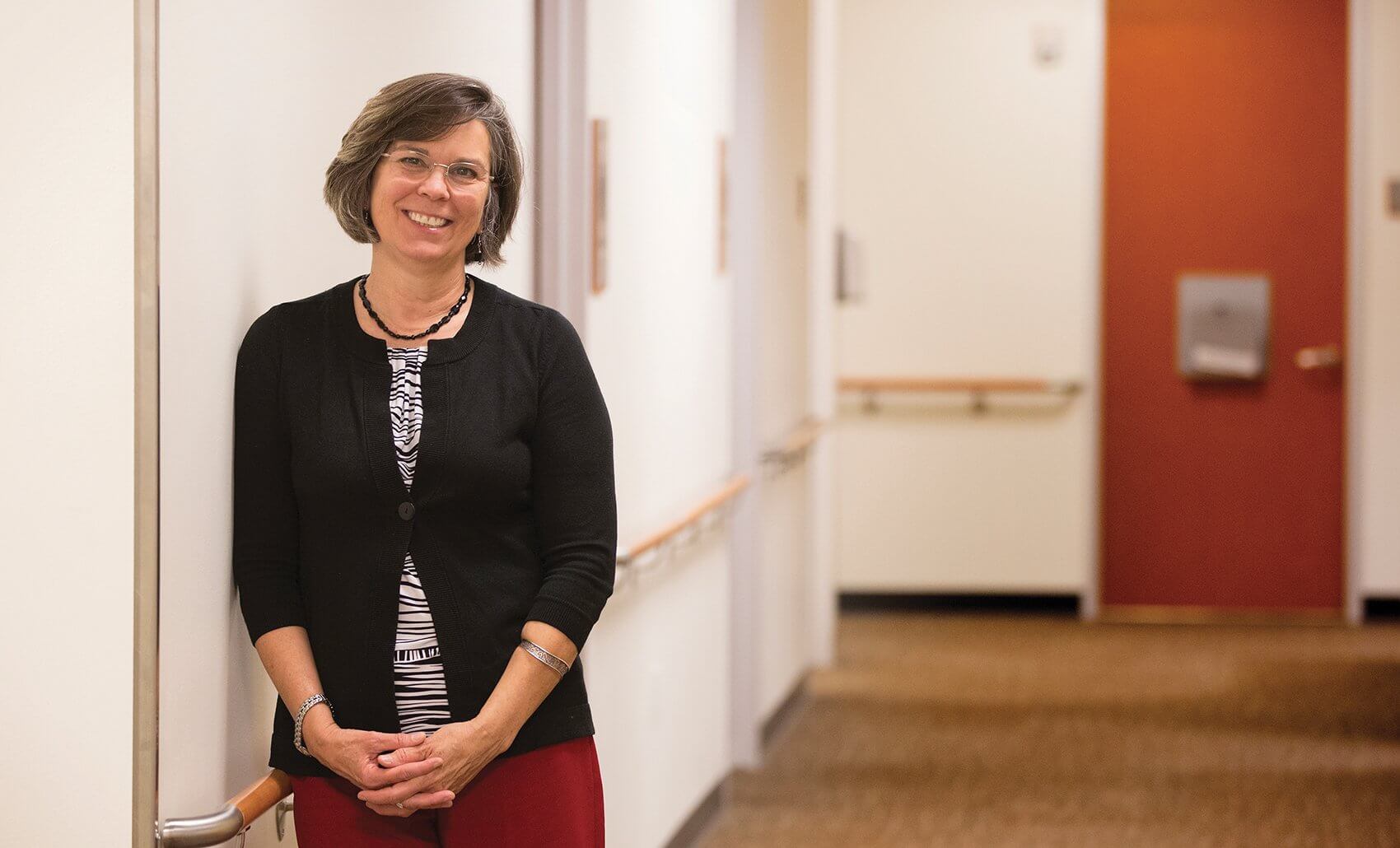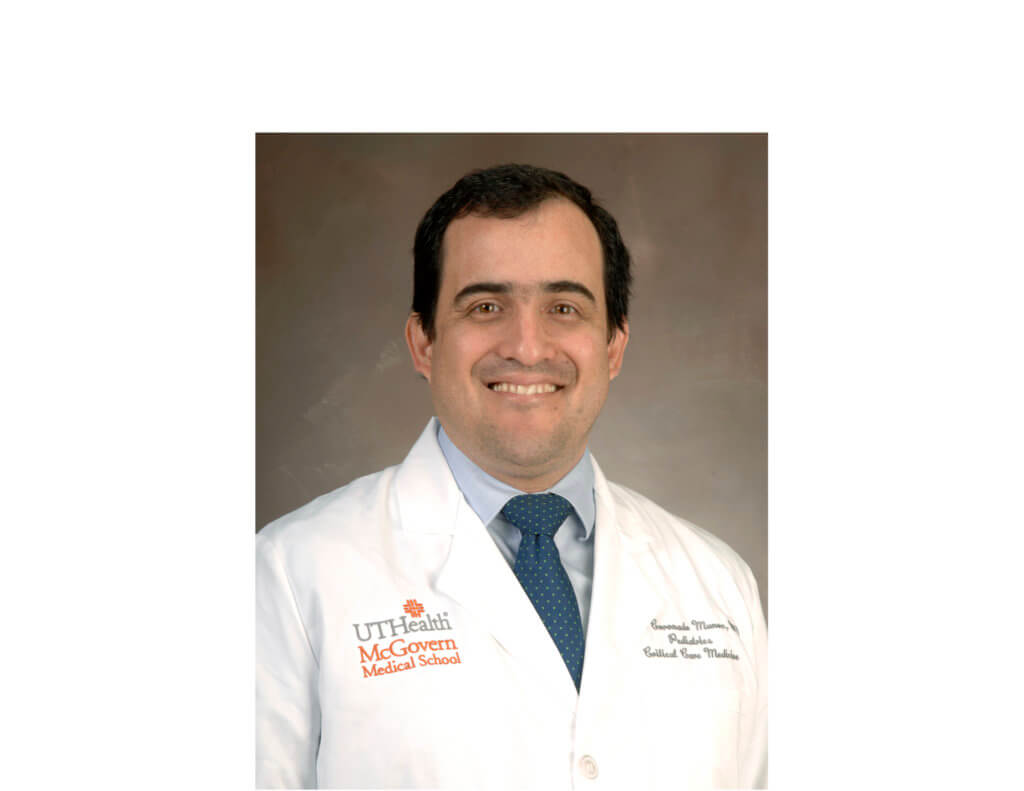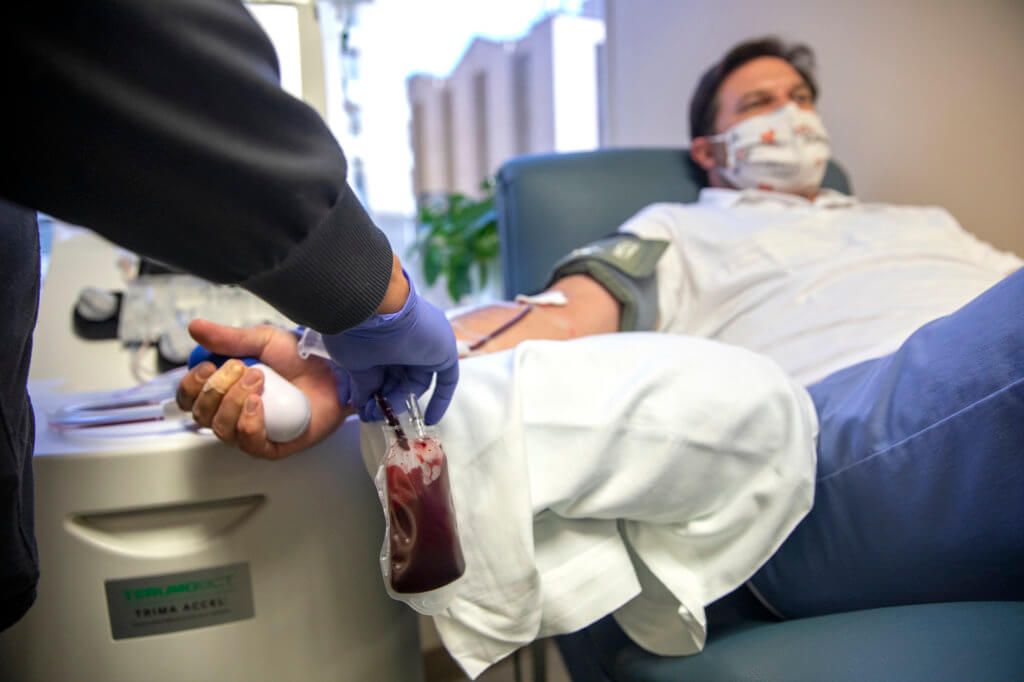A New Kind of Care

There are currently 53 million adults with intellectual and developmental disabilities in the United States population, according to the Centers for Disease Control and Prevention. Due to a lack of trained health care professionals, the majority of this population are unable to find quality medical care, and sadly many go for prolonged periods of time without health care as a result.
Cynthia Peacock, M.D., director of the Transition Medicine Clinic at Baylor College of Medicine, received her medical degree and residency training from Baylor College of Medicine. After her medical training, she returned to Baylor and became the combined internal medicine-pediatric residency program director. While in this position, she recognized a gap in care for people with intellectual and developmental disabilities once they aged out of the pediatric health care system.
“While I was the residency director at Baylor, several of my pediatric colleagues began telling me about the number of individuals coming out of the pediatric health care system who could not find adult health care,” Peacock said.
Adults with disabilities such as autism, Down syndrome and cerebral palsy suffer from many health issues that require constant medical care. Fifty percent of people with Down syndrome have congenital heart disease and many also suffer from thyroid disease, lung disease and gastrointestinal issues.
“Many times their anatomy is very different than that of a neuro-typical person,” Peacock said. “Generally only pediatricians are trained to work with people with developmental disabilities and understand the physiology differences they present with.”
Many of the patients with intellectual and developmental disabilities also suffer from behavior disorders that make seeing a doctor in a traditional clinic setting very challenging.
Whether it be a sensitivity to light, fear of elevators and crowds or even sitting still in a chair, it can be very hard for these patients to be seen by community physicians because of the time and accommodations it takes for them to be comfortable.
“Most physicians do not have time to accommodate this patient population and also have not been trained with the techniques to help make them comfortable in a clinic setting,” Peacock said.
In 2005, Peacock opened the Transition Medicine Clinic at Baylor College of Medicine to provide medical care and social support services to the growing population of adolescents and young adults with a chronic childhood illness or disability as they move from pediatric to adult health care.
Today, the clinic serves 700 patients with complex childhood conditions from around the Houston community and utilizes the resources and talent the Texas Medical Center has to offer to provide the best care possible for patients.
“The patients that I see at my clinic are significantly impacted by their childhood conditions. Not only do many have intellectual and developmental disabilities, but they also have numerous social determinants that impact their disease status. The combination of the two can affect their ability to find health care providers who are willing to care for them,” Peacock said.
By partnering with numerous health care providers from around the Texas Medical Center, Peacock is able to offer her patients a complete medical home and primary care. In addition to primary care, patients of the Transition Medicine Clinic at Baylor can receive help from social workers, have procedures done, see specialists and even have optical and dental care arranged for them.
“I think our clinic model demonstrates that if you engage all of these people from different fields and get them to work together, you can really provide the best care for this population of patients, and it has been life-changing for our patients,” Peacock said.
Many of the patients from the Transition Medicine Clinic at Baylor are sent to the University of Houston College of Optometry for optometry services. The school provides a clinic specifically for adults with disabilities called SNAPS (Special Needs Adult and Pediatric Service). The clinic cares for teens and adults with a variety of disabilities and with different levels of cognitive aptitude.
Kassaundra Johnston, O.D., director of SNAPS and clinical assistant professor at the University of Houston College of Optometry, started the clinic after seeing a need for care in the special needs adult population.
“After completing my residency, I felt like we were not providing the full service to adults with disabilities. We were doing an excellent job with the pediatric population, we were doing a pretty good job when they got out of pediatrics, but I felt like we could be doing something better and different,” Johnston said. “When I became faculty, I was given the opportunity to mold my own clinic, and I wanted to provide a full-service clinic for all adults with developmental delays or disabilities.”
The clinic provides comprehensive eye exams for patients, fits patients for glasses specifically made for children and adults with developmental disabilities and provides families and caregivers with information and strategies to better communicate with their loved ones.
“We try to provide the patients and their families with not only the basic eye exam and glasses, but also information that they can take back and use in their daily lives,” Johnston said. “For example, if a patient is nonverbal, we can tell the parent that their son or daughter has 20/30 vision and we relate that back to font size, so whenever they are reading or looking at near materials we know they are able to see it properly.”
The clinic is run by Johnston through the University of Houston College of Optometry and is staffed by fourth-year students throughout the year. The course is an optional clinical rotation and not required by the school to graduate from the College of Optometry. The course aims to teach students the best techniques to use when examining patients with special needs.
“I think one of the biggest challenges for this population is finding an office that can spend the amount of time it takes to do these exams,” Johnston said. “There will be times I have to do my exam on the floor because I am working with a patient who feels the most comfortable there, or they might need 30 minutes by themselves in the room to be comfortable with it. My hope for my students in SNAPS is that when they have their own practices, they will take the extra time to work with these patients and be prepared to do so.”
The majority of patients seen by Johnston and her team have autism and Down syndrome. Patients with Down syndrome, especially, have a hard time wearing traditional glasses because they do not fit well on their faces.
“The facial features of patients with Down syndrome are different than others because their bridges are flatter and their ears are lower-set. Because of this, most glasses will fall off of their faces or will be uncomfortable for patients to wear,” Johnston said. “I don’t think twice to recommend a new type of glasses for my patients because I want to give them every option for frame selection we have to provide them with the best vision possible.”
Specs4us is one of the eyewear companies the University of Houston College of Optometry uses for their patients. The company was started by Maria Dellapina, a single mother of four whose youngest daughter was diagnosed with Down syndrome. Dellapina had 30 years of experience working in the optical field and was very frustrated that she was not able to get her daughter glasses that fit properly.
“When we began looking for glasses for my daughter, there were only two options—Miraflex or Specs4us,” said Kalaya Riccio, the mother of an optometry patient. “We started [my daughter] out with Miraflex, but they pushed against her eyelashes and made her very uncomfortable. When we switched to Specs4us, there was much less distraction and she enjoys wearing them.”
Whether it be primary care or optometry, Texas Medical Center providers are working to provide quality care to all patients regardless of their cognitive aptitude.







